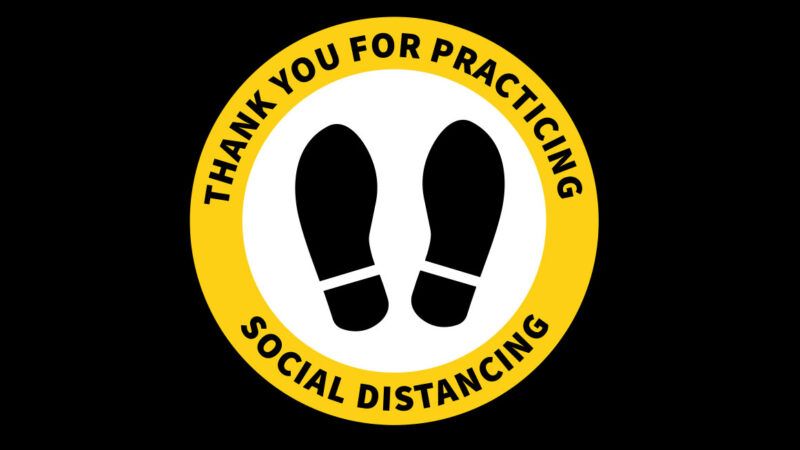COVID Power Proves Tough To Kick
Politicians and bureaucrats are addicted to foisting their arbitrary reopening rules on everyone else.

"One step forward, two steps back" is both a phrase that describes the pace of reopenings in America's most COVID-averse jurisdictions and a dance move that was, for a brief time, illegal at weddings in Washington, D.C.
Beginning in May, Democratic D.C. Mayor Muriel Bowser allowed the city's various venues and event spaces to host "special non-recurring" events for up to 250 people, including weddings. As a condition of allowing these large indoor gatherings, however, the mayor required that attendees remain seated and socially distanced. Wedding dances were explicitly prohibited.
Fortunately, a lawsuit from an irate bride-to-be led to the re-legalization of father-daughter dances later the same month. The short-lived restriction was nevertheless part of a trend. The most cautious cities and states tended to slap seemingly arbitrary rules on whatever activities they decided to start allowing.
Take Los Angeles, which in early May reported its first day without a COVID-19 death since March 2020. With cases plummeting, L.A. County's public health department began easing restrictions on indoor events. Venues that seat up to 1,500 people were allowed to open at 25 percent of capacity, while venues that seat more than 1,500 were limited to 10 percent. As in D.C., attendees must remain seated and can eat or drink only in designated dining areas.
People looking to see a show in L.A. will have to show proof of vaccination, but only if they're traveling from outside the state. Angelenos, for reasons unexplainable by science, don't face the same restrictions as their guests.
As Los Angeles was opening up, Democratic governors Andrew Cuomo of New York and Phil Murphy of New Jersey were also increasing caps on larger events. Indoor venues in both states are now allowed to operate at 30 percent of capacity. Events at outdoor venues, where the risk of transmission is minuscule, are subject to a more generous 33 percent cap.
Proof of vaccination or a negative COVID-19 test is required for both indoor and outdoor events. And despite all those conditions, attendees will still have to wear masks and socially distance.
The power to make people wear masks even when it's safe not to has been tough for pols and bureaucrats to give up. Consider Brookline, Massachusetts. The city of 60,000 made a point in early May of retaining its outdoor mask mandate, even as Republican Gov. Charlie Baker lifted an identical state-level restriction in response to federal public health guidance saying it was no longer necessary.
All these jurisdictions are moving in the right direction, and these rules will eventually end up in the dustbin. But having the end in sight makes the needless interim red tape more irksome.
Rent Free is a weekly newsletter from Christian Britschgi on urbanism and the fight for less regulation, more housing, more property rights, and more freedom in America's cities.


Show Comments (272)